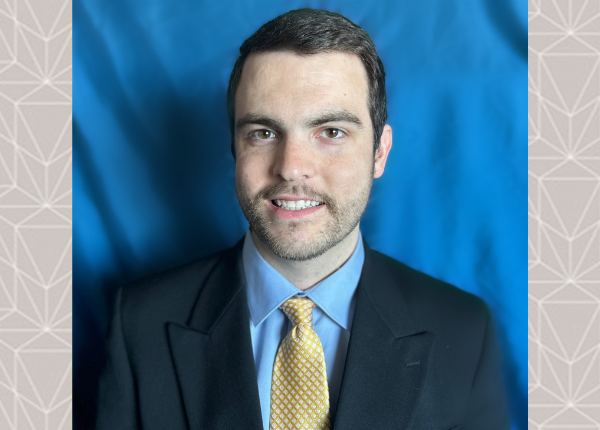
Ian Anderson '25 is a biomedical engineering major with a minor in mechanical engineering and mathematics. This summer he is working at Oxford Performance Materials (OPM) in South Windsor, a materials manufacturer with a proprietary 3D printing process for a polymer called poly-ether-ketone-ketone, or PEKK. In this role, Anderson is learning how the field of biomedical engineering operates in a professional setting.
At UHart, Anderson is the president of Tau Beta Pi, the engineering honor society. He is also the secretary for the Biomedical Engineering Society and plans to travel to Seattle, Washington this fall for the annual meeting.
“I am pursuing biomedical engineering because I have a special interest in the field of solid organ transplantation, particularly in the area of cardiac transplantation. There is a massive deficit of organs available when compared to the number of people awaiting transplant at any given time.” To strengthen his skill, Anderson is also an undergraduate research assistant in the tissue engineering laboratory. In this role, he can research tissue cells and use his work for a wide range of applications.
“I have a special interest in cardiac transplantation because cardiovascular diseases are the leading cause of death worldwide by a wide margin. There is so much untapped potential for expansion in the field of bridge-to-transplant therapies, as well as total organ replacement” he shared.
Ian Anderson '25, Biomedical Engineering, CETAThe University of Hartford has provided me with a clear-cut path to success with the curriculum for the biomedical engineering major. The wide range of courses required from different fields of engineering have been useful to discover what aspects of biomedical engineering I prefer to focus on."
During his internship at OPM, Anderson has enjoyed learning how implantable medical devices go from the early design stage all the way to being implemented by a surgeon in an operating room.
He explained, “It has been a fascinating experience and it is made better by the kind and intelligent people who run Oxford Performance Materials” he added. “Getting out and getting real-world, hands-on experience is very important for getting a complete view of a particular area of interest.”
Anderson found that his classroom experiences did carry over into his internship work, sharing that Dr. Solaleh Miar and Dr. Takafumi Asaki helped prepare him to embrace the work he is currently doing.
“The University of Hartford has provided me with a clear-cut path to success with the curriculum for the biomedical engineering major. The wide range of courses required from different fields of engineering have been useful to discover what aspects of biomedical engineering I prefer to focus on.” He went on to add that CETA’s makerspace and 3D printing lab has been integral for conducting projects and research.
When asked about the advice Anderson would give to incoming and current students, he stated that “I think it is important to recognize that time is the most important resource. How people spend their time defines their legacy. Each second provides an opportunity to do something new and unique. It is of the utmost importance to constantly maintain a positive mindset so that time can be spent positively contributing to the greater good.”
After graduation, he plans to pursue his Ph.D. in the field of biomedical engineering.